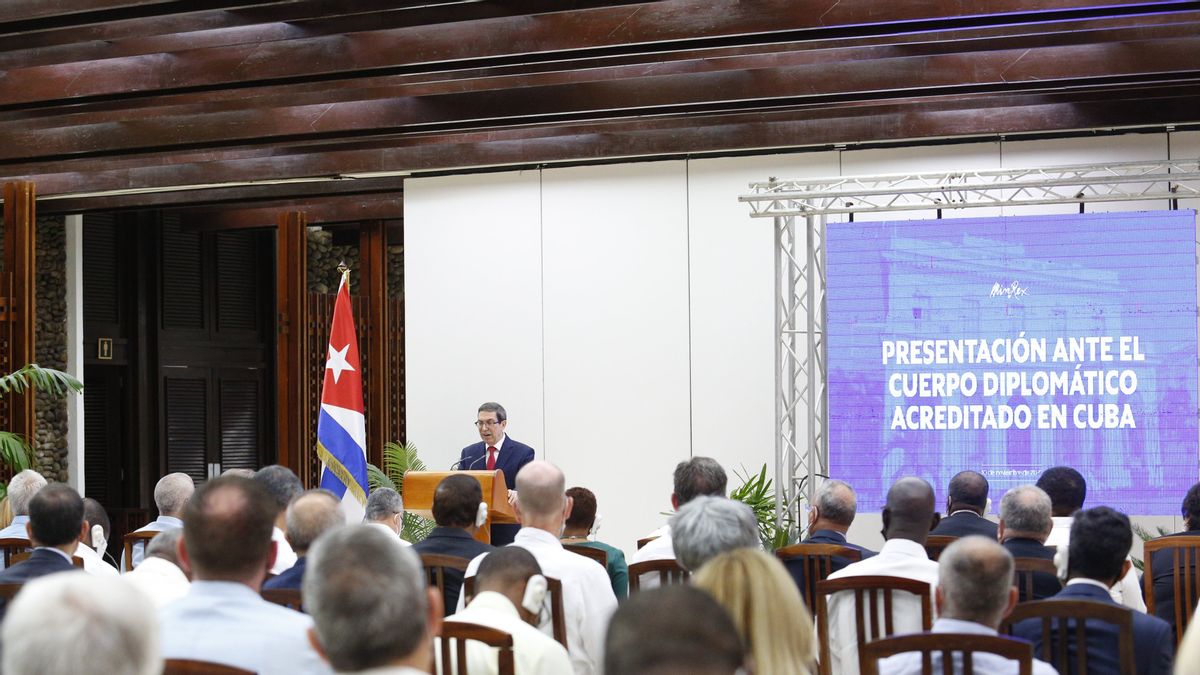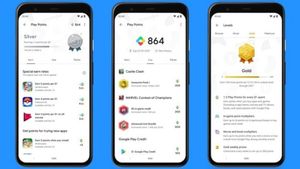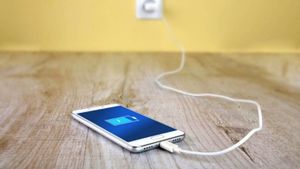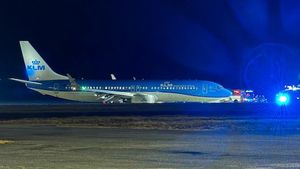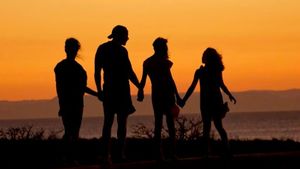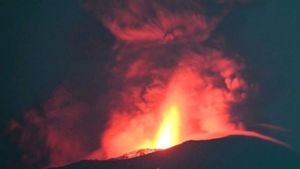JAKARTA - Cuba's Foreign Minister, Bruno Rodriguez, on Wednesday, November 10 accused the United States of being behind protests over human rights and civil rights planned for November 15 in the country run by the Communist government. He also said that the US-based social media platform, Facebook, had helped to promote the actions of the dissidents.
Dissidents on the island, organized under a Facebook group called Archipielago, in September asked permission to stage demonstrations. Cuban authorities refused their request. On the contrary, it accuses protesters of working with the United States to overthrow the government.
Foreign Minister Bruno Rodriguez repeated the accusations before a meeting of foreign diplomats in Havana. He said the United States had helped to endure and organize the protests in an attempt to destabilize the government.
"US policy ... is doomed to fail. It's not worth it. It hasn't worked for 60 years. It hasn't worked now (...) and it won't work in the future", Rodriguez said citing by Reuters.
The US intends to orchestrate a provocation to spoil our just celebration of the first steps in the transition towards the new normality after long months of pandemic. It is a hostile interference in Cuban affairs and our government will not allow it.#CubaVive
1/4 pic.twitter.com/6rNLrifyrx
— Bruno Rodríguez P (@BrunoRguezP) November 10, 2021
Rodriguez specifically cited Facebook's role, saying dissidents organized in groups on the platform violated the social media platform's own policies. He accused Facebook of "changing the algorithm, changing the geolocation mechanism to simulate a massive presence in Cuba of people with accounts known to live outside Cuba, particularly in Florida and on US soil".
Rodriguez said the practice violated the US and international law. "As has been the case, Facebook could, in strict compliance with the law, be prosecuted for these practices against Cuba", Rodriguez added.
"The US intends to orchestrate provocations to undermine our fair celebration of the first step of the transition to a new normal after months of the pandemic. This is a hostile interference in Cuban affairs and our government will not allow it", he added in a tweet.
Neither the US State Department nor Facebook, which recently changed its company name to Meta, did not immediately respond to requests for comment from Reuters on the allegations.
Cuba's recent expansion of web access has provided a new way for people to share criticism and move online.
SEE ALSO:
The Facebook group behind the protests, Archipielago, said it had 31,501 members, more than half of whom it said lived in Cuba. Cuba's dissident leader, Junior Garcia, of the Archilpielago, could not be reached by Reuters for comment.
Cuba's government has had a monopoly on telecommunications, and regularly blames trolls and foreign agents on social media for fueling unrest in the country.
The island nation has experienced disruptions in access to the internet and social media following massive anti-government demonstrations last July, in an apparent attempt to stifle calls for further protests.
Rodriguez also told diplomats that the United States last week offered Cuba one million doses of a vaccine against the coronavirus. But he criticized the offer as "opportunistic" and irrelevant, given that Cuba has vaccinated nearly its entire population with domestically grown drugs.
Instead, he made a counter-offer, suggesting that Cuba and the United States should each offer their respective vaccine donations to a country that needed it most.
The English, Chinese, Japanese, Arabic, and French versions are automatically generated by the AI. So there may still be inaccuracies in translating, please always see Indonesian as our main language. (system supported by DigitalSiber.id)
